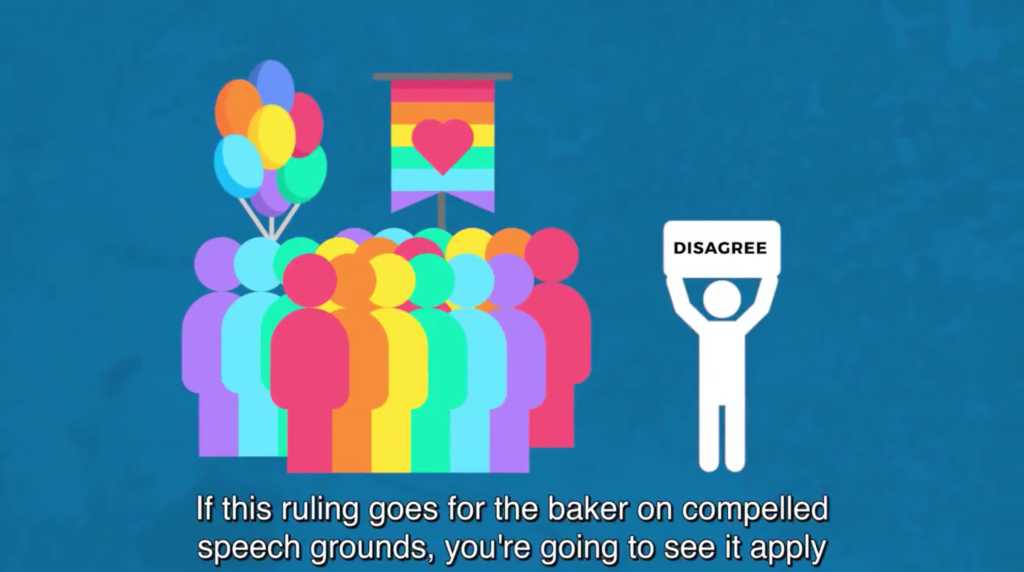A law professor has broken down what’s at stake in the Supreme Court’s highly anticipated Masterpiece Cakeshop v. Colorado Civil Rights Commission case — a battle over a Christian baker who declined to make a wedding cake for a gay couple.
READ: 21-Year-Old Christian Shot Dead While Clutching His Bible and Sharing God With His Murderer
Randy Barnett, a professor at Georgetown University Law Center, also revealed that he believes there’s an argument that will likely get far more attention than the baker’s religious freedom defense, which has thus far captured headlines.
Barnett said in a video released this week that the case is certainly difficult and complex, as one side is arguing against discrimination and the other is arguing that the government can’t compel people to convey speech and messages with which they disagree.
And while Barnett said that religious freedom and religious liberty have been at the heart of the attention that has surrounded baker Jack Phillips, he believes that the issue of “compelled speech” will be what really gets the most attention moving forward.
“There’s this other dimension of the case that I think is going to get the most attention and that is the compelled speech aspect of it,” he said. “Making you say something that you don’t really believe.”
But will a victory for Masterpiece Cakeshop lead to increased discrimination? Watch:
Some say the much-anticipated Masterpiece Cakeshop case is about religious freedom. But Professor @RandyEBarnett says “compelled speech” may take the cake at #SCOTUS arguments. #Legalese #MasterpieceCakeshop pic.twitter.com/5RLIrGwOBH
— Georgetown Law (@GeorgetownLaw) December 4, 2017
Barnett went on to provide other examples of compelled speech that mirror the baker case. To begin, he asked whether a Muslim baker should be forced to make a cake with the Prophet Muhammad on it — something that the Islamic faith would preclude.
Then, he moved on to ask, in the same vein, whether a Jewish baker should be forced to make a pro-Nazi cake.
“We all, I think, would have a visceral reaction against the government making people express that message,” he said.
In the end, Barnett said that a ruling in favor of the baker wouldn’t open the floodgates to discrimination against people in public accommodations and that it would, instead, apply to cases surrounding wedding venders and same-sex ceremonies.
You can read a full explainer on the Masterpiece Cakeshop v. Colorado Civil Rights Commission case here.



